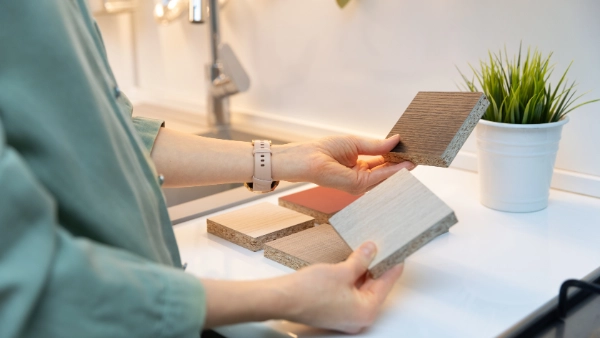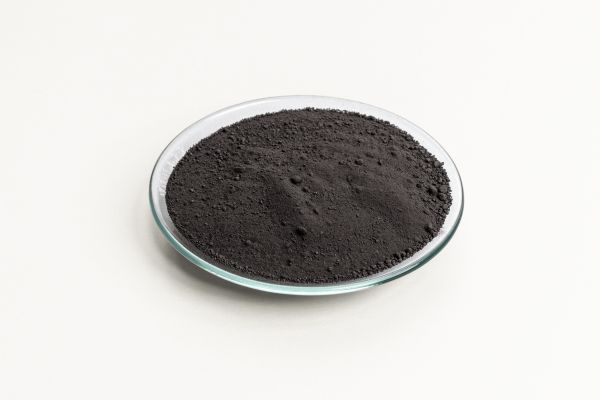Green chemistry from cellulose: Furniture without petroleum
Countless everyday products contain petroleum - including furniture. More precisely, in the adhesives used to make plywood panels, for example. But there is a green alternative. Thanks to a new catalyst developed by Heraeus Precious Metals, biomass-based chemicals made from cellulose can replace the fossil raw material.
The so-called basic chemicals, which today serve as the starting material for plastics, paints, adhesives, and much more, are usually based on petroleum. About nine percent of the petroleum extracted worldwide flows into the chemical industry. But fossil resources are drying up, and also because of climate change, the demand for bio-based chemicals, for example from plant biomass, is growing. These platform chemicals made from renewable raw materials have a significantly better eco-balance than their fossil-based counterparts.

Our contribution: Catalyst makes cellulose usable as raw material for chemicals
Catalysis is an important process for obtaining chemicals from biomass. Heraeus recognized the market's need several years ago and launched a program to develop precious metal-based catalysts. These catalysts are needed to convert renewable raw materials into sustainable chemicals.
One source of sustainable chemicals is wood, or more precisely the wood components lignin and cellulose, which are forestry residues. Certain organic compounds must first be extracted from the biomass. The molecule 5-hydroxymethylfurfural, or 5-HMF for short, can be obtained from cellulose. It is converted by heterogeneous catalysis into diformylfuran (DFF), a versatile platform chemical for numerous biobased products.
DFF is suitable as a component for phenolic resins, which are used in adhesives, for example as glue for plywood and chipboard. Because the raw material is renewable biomass, DFF-based phenolic resins are a sustainable alternative to conventional adhesives with fossil components. In other words, with green chemicals, there is less petroleum in our furniture.
Efficient conversion thanks to ruthenium
For the conversion of 5-HMF into DFF, specialists from the Heraeus Precious Metals business unit have developed a catalyst based on ruthenium, a rare precious metal. "Studies have shown that ruthenium has immense potential in the catalytic conversion of sustainable raw materials such as biomass," says Dr. Gisa Meißner, project manager in the research department for chemical precious metal-based heterogeneous catalysts at Heraeus Precious Metals.
At the end of its useful life, the catalyst and thus the ruthenium can be recycled. Heraeus offers a complete precious metal cycle: From the extraction of the raw material to its use as a catalyst to its recovery. Secondary metals, i.e. recycled precious metals, can reduce the CO2 footprint by up to 98 percent compared to primary metals from mining.
"Our precious metal catalysts enable the efficient recycling of biomass into sustainable products" says Dr. Meißner. "At the same time, our customers benefit from a recycling strategy that not only brings economic advantages, but also ecological ones in particular."


